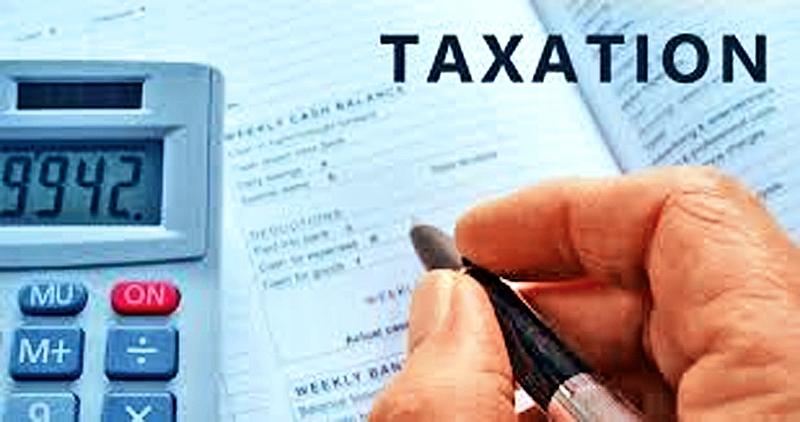
Amendments to be incorporated at Committee Stage:
Indirect taxation of 83 percent revenue not progressive:
Economists and business community representatives said the new Inland Revenue Bill is a vital piece of legislation to reform the current tax system in the country and make it more justifiable to tax payers.
The new Bill was presented to parliament for debate last Friday.
However, economists called for moves to further improve the new tax law in making it people friendly.
The current taxation is a regressive form of taxation which burdens the low income sector in the country with indirect taxes.
Ceylon Chamber of Commerce Chief Economist Anushka Wijesinghe said the Inland Revenue Bill is an important milestone in reforming the current tax system. Currently, indirect taxation contributes 83 percent of revenue which is not progressive. We hope that the new Bill will help shift the ratio towards more direct taxation.
Improvements to tax administration must come alongside this, otherwise the tax base would not be widened and the same tax payers - individuals and corporates will continue to contribute to taxation, while tax evasion occurs.
“On the Bill itself, we have had very fruitful discussions with the Finance Ministry officials over the past few months, and they have been very receptive to our views. We understand that the majority of the amendments we proposed have been considered favorably, and would be incorporated into the Bill as Committee Stage Amendments. Our Taxation Steering Committee Chair has been taking the lead on the Chamber’s engagements with the Finance Ministry.
“The passing of the Bill will also be an important signal to international investors - particularly bond investors and ratings agencies - that our fiscal consolidation effort is on track. This is important to bring our international borrowing costs down.
“What we must see happen alongside this greater onus on direct tax, is a greater onus on rationalizing public expenditure. Fiscal policy is two sides of the same coin. While economic actors - individuals and companies - are taxed more, spending must also be rationalized.
This must necessarily include fast tracking of reforms to loss-making state-owned enterprises, given the drain they have on public coffers. Without this, the full fiscal benefits of tax reforms would not be achieved.
University of Colombo Department of Economics Professor of Economics Sirimal Abeyratne said the Inland Revenue Bill is just one step of a long-awaited multi-dimensional reforms process.
There could be still weaknesses, but the country needs to widen tax base, alter direct-indirect tax shares, and to improve tax revenue. As far as these long-standing needs are concerned, this is a move in the right direction.
“However, there are much more to add and supplement it with broad-based fiscal management reforms. Simplification and rationalization of the country’s entire tax system and tax-paying system as well as enhancing productive and justifiable tax-utilization are important elements of a fair fiscal management practice,” Prof. Abeyratne said.
A university don said that there is no two words that the government needs money for development activities but that doesn’t mean that the existing Inland Revenue Act should be done away with to come up with a new.
‘The existing tax law could have been refined with certain amendments to be effective in revenue administration and collection whereby everyone could benefit. Instead a new law will be an added cost and a burden for revenue administration ,” he said.
He said if revenue officials are provided sound training and if the Revenue Administration Management Information System (RAMIS) is implemented properly there is no need what so ever to introduce a new law which will please a foreign organization.
“There are no measures to improve revenue collection with a sound network that will create a smooth operation,” the don said.
Tax experts also noted that the new law will give rise to new issues such as having to read two statutory books to understand the law as the new Act is split in two broad sections such as revenue administration and revenue collection.
“ I do not condone that the private sector is efficient than the public sector . The private sector is inefficient than the public sector in Sri Lanka and its hands are not always clean,” he said.
However, tax experts said that there are plus factors in the new Act such as measures to widen the tax base, simplification and rationalizing the tax rates should be commended.
The current tax to GDP ratio is around 12 percent which economists say should ideally be at least around 18 percent to the GDP.
Shippers’ Academy Colombo CEO, Rohan Masakorala said it is important that tax laws of this country be reformed since the bottom line is that a large section of the population who are low income earners are indirectly taxed unfairly.
The distribution of income has to be rectified. Tax reforms is one way to commence the reform process. As a tax payer people have to pay their fare share of taxes on profits . If not, developing the country with social security benefits will be impossible.
“We should note that a good number of the population will be over 60 within the next decade.We must invest on quality education and heath care and plan proper urbanization over the coming decades. If the government could increase the tax to GDP revenue to around 18% by 2020 it will be the right direction,” Masakorala said.
A transparent tax structure will help have a positive impact on investment, exports and logistics. As long as bribery and corruption exist tax payers will be hesitant to pay taxes as they feel it is a waste of their hard earned money.
